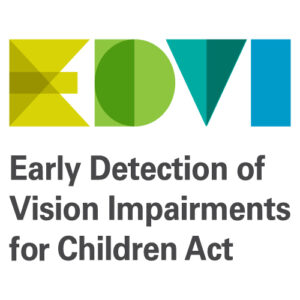Key Takeaways from the 2024 Focus on Eye Health Summit
By: Olivia Pincus, MPH Candidate, George Washington University
The 2024 Focus on Eye Health Summit, with the theme Being Seen and Heard, hosted a roundtable session titled Seeing and Hearing Children’s Vision Needs, where experts discussed the need for robust policies around children’s vision and eye health services. Moderated by Phil Goglas II, MPAP, Managing Partner at Health and Medicine Council LLC, the session featured insights from Karen Woodhouse, Director of Eyes on Learning, Shanyn A. Toulouse DNP, MEd, BSN, RN, NCSN, Northeast Regional School Nurse Consultant for Haverhill Public Schools, and Sara D. Brown, MPA, Director of Government Affairs at Prevent Blindness.
[aiovg_video id=39622]
Karen highlighted Arizona’s progress in addressing children’s vision since the formation of the Eyes on Learning Coalition in 2016. Despite the lack of state and federal funding, the coalition has relied on philanthropic partners and businesses. Arizona recently passed a law requiring vision screening in schools, set to begin this school year. The coalition also developed a surveillance system using Medicaid claim data and a data dashboard to guide decision-making. Additionally, they transformed the vision screeners’ certification system into a free, accessible online platform for the state. A primary focus for their future actions includes ensuring children who fail screenings receive follow-up eye care.
Shanyn shared the successes and challenges faced by school nurses in Massachusetts as they worked to ensure healthy vision for children. In 2021, updated state vision screening guidelines were implemented with support from the Children’s Vision Massachusetts Coalition. An educational website was developed, and training sessions were held across the state to support school nurses. Despite these efforts, equitable access to eye care remains a challenge, particularly in rural areas and among families affected by social determinants of health. Shanyn emphasized the need for a statewide tracking system to ensure children who do not pass a vision screening receives necessary eye care.

Sara discussed the Early Detection Vision Impairment Act of 2024 (HR 8400), emphasizing the bipartisan effort to improve children’s vision care across the U.S. The bill aims to provide grants to states and communities to establish or improve systems of care for children’s vision, establish a technical assistance center and public health research at the CDC, and promote coordination and collaboration among federal agencies addressing children’s health, development, and learning. Sara stressed the importance of advocacy and local engagement in advancing the bill through Congress, highlighting the need for constituent support to influence legislators.
Key Takeaways:
- Ensuring all children, regardless of location or socio-economic status, have access to vision care is essential.
- Successful vision care initiatives rely on collaboration among healthcare providers, educators, policymakers, individuals and families, and community organizations.
- Robust data collection and surveillance systems are vital for tracking vision care outcomes and guiding policy decisions.
- Bipartisan efforts like the Early Detection of Vision Impairments for Children Act are crucial for providing the necessary funding and resources to improve children’s vision care systems.
The Early Detection of Vision Impairments for Children (EDVI) Act of 2024 would establish a grant program for states and local communities to:
- Implement early detection practices (such as vision screening) and intervention initiatives for the purpose of identifying vision concerns in children as they engage in the medical, home, public educational, or early learning setting, promoting referrals to eye care, and promoting the use of evidence-based and age-appropriate standards guided by nationally recognized and uniform guidelines.
- Develop an integrated approach to State-level data collection and management to advance State-based performance improvement systems and uniform children’s vision and eye health guidelines across relevant and appropriate State-level jurisdictions.
- Identify strategies to improve eye health outcomes, expand access to care, and reduce health disparities for the detection, diagnosis, and treatment of ocular disease and eye conditions in children who experience barriers to eye care from rural and underserved populations.
- Raise awareness by providing the public, including families, guardians (permanent, legal, or temporary), family or community caregivers, and early learning settings with children’s vision and eye health information that is accurate, accessible, culturally and linguistically competent, comprehensive, up-to-date, and evidence-based or evidence-informed.
- Establish a coordinated public health system for vision care and eye health, including early detection, referral to eye care, diagnosis and intervention, and follow-up for children.
- Provide referrals to wrap-around vision services, as necessary, for a future of independent living.
Find out more about the EDVI Act and how to support its passage.

